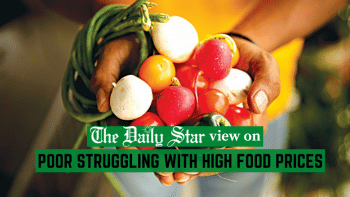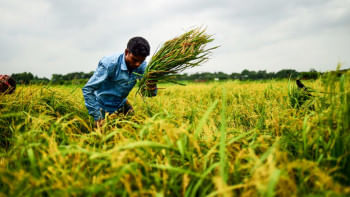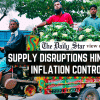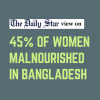We must avert food crisis

In the aftermath of the Russia-Ukraine war and the global disruption of fuel and energy prices, there has been a lot of discussion on what happens next, and many international leaders have weighed in on the debate – some calling for conflict resolution, and many moving towards greater militarisation. In the midst of all the uncertainty, we applaud PM Sheikh Hasina for being a strong voice in representing the developing world's greatest concern: the impact of the war on global food supplies and the cost of food. And we wholeheartedly support her call to action to ensure that no country suffers from food shortage and famine, especially when such shortages are a result of conflict and not any actual scarcity of food resources.
This call to action has never been more urgent in the Bangladeshi context, where food inflation reached almost 10 percent in August – the highest since the fiscal year 2012-2013 – before dropping to nine percent in September. Despite the fact that we have made gains in food production and ensured greater availability of rice in recent years, it is still being sold at near-record high prices. People are lining up from the crack of dawn to buy rice and flour from OMS trucks at subsidised prices.
The situation is made even worse by the fact that the recovery from the loss of earning during the pandemic for people from low-income backgrounds has been painfully slow, meaning they are forced to spend less for food in order to pay for rent, utilities and healthcare. A recent WFP survey has found that around 68 percent of the population are struggling to buy food. In this context, we must take all possible measures to ensure the situation does not escalate into a full-blown food crisis or famine.
Immediate measures must be taken to stop the wastage of food, improve food storage facilities and transportation networks, and cultivate land for food production. In this, we can all play a role, but the relevant authorities must play the leading role in implementing the PM's directives. Far too many glaring discrepancies remain in this regard. For example, while the PM has asked that every bit of cultivable land is used for food production, the latest DAP for Dhaka allows for construction on the little agricultural land left on the city outskirts based on certain conditionalities. Such gaps between policy and action must be urgently plugged if the issue of food scarcity is to be dealt with effectively.


 For all latest news, follow The Daily Star's Google News channel.
For all latest news, follow The Daily Star's Google News channel. 








Comments